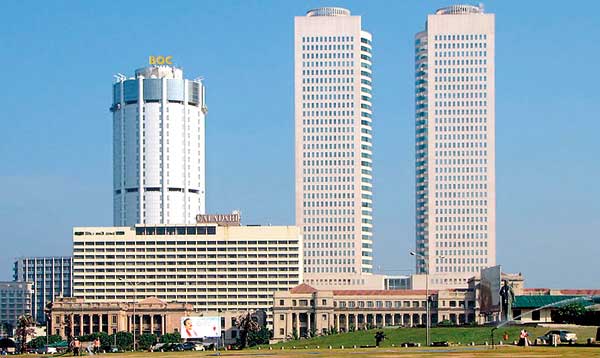Reply To:
Name - Reply Comment
Last Updated : 2024-04-25 00:00:00

.jpg) With 25% of the world’s gross domestic product, the region accounted for 38% of the economic losses due to natural disasters from 1980–2009. Unless governments, businesses and households better prepare for the increase in With 25% of the world’s gross domestic product, the region accounted for 38% of the economic losses due to natural disasters from 1980–2009. Unless governments, businesses and households better prepare for the increase in .jpg) storms, floods and droughts, the economic consequences would likely worsen storms, floods and droughts, the economic consequences would likely worsen |
.jpg) Sri Lanka has faced its share of natural calamities, the deadliest being the 2004 Tsunami. In addition, severe drought from 2011–12 left many districts in the northeast Sri Lanka has faced its share of natural calamities, the deadliest being the 2004 Tsunami. In addition, severe drought from 2011–12 left many districts in the northeast .jpg) and southwest of the country parched; reservoirs dwindled and people in hard-hit areas lacked safe drinking water and southwest of the country parched; reservoirs dwindled and people in hard-hit areas lacked safe drinking water |
.jpg) According to the International Federation of the Red Cross, by October 2012, a second straight season of scanty rainfall had dried out several districts in these areas. Yet, as rains in November-December 2012 returned, they quickly turned to severe flooding.
According to the International Federation of the Red Cross, by October 2012, a second straight season of scanty rainfall had dried out several districts in these areas. Yet, as rains in November-December 2012 returned, they quickly turned to severe flooding.
Add comment
Comments will be edited (grammar, spelling and slang) and authorized at the discretion of Daily Mirror online. The website also has the right not to publish selected comments.
Reply To:
Name - Reply Comment
US authorities are currently reviewing the manifest of every cargo aboard MV
On March 26, a couple arriving from Thailand was arrested with 88 live animal
According to villagers from Naula-Moragolla out of 105 families 80 can afford
Is the situation in Sri Lanka so grim that locals harbour hope that they coul